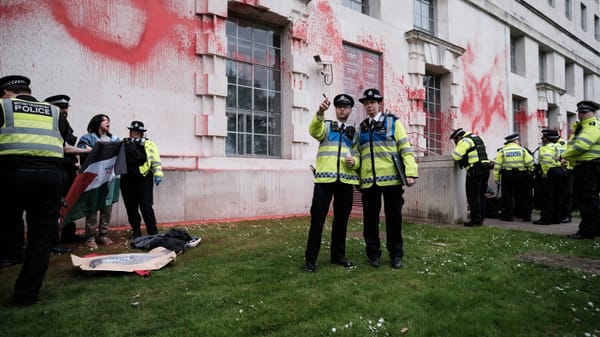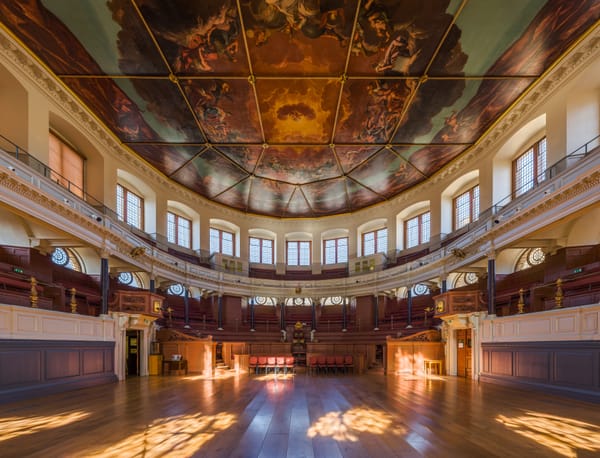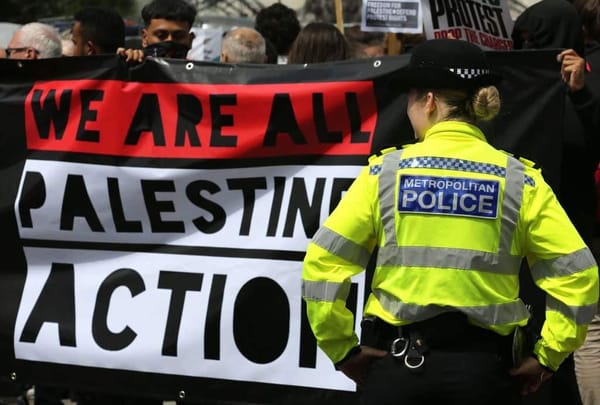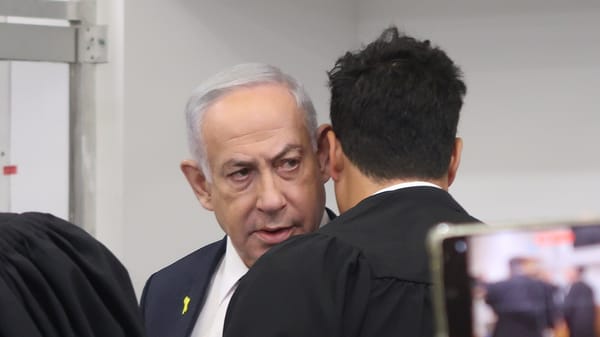In the sights of Germany’s “war on antisemitism”
Berlin's anti-Palestinian crackdown doesn’t protect Jews.
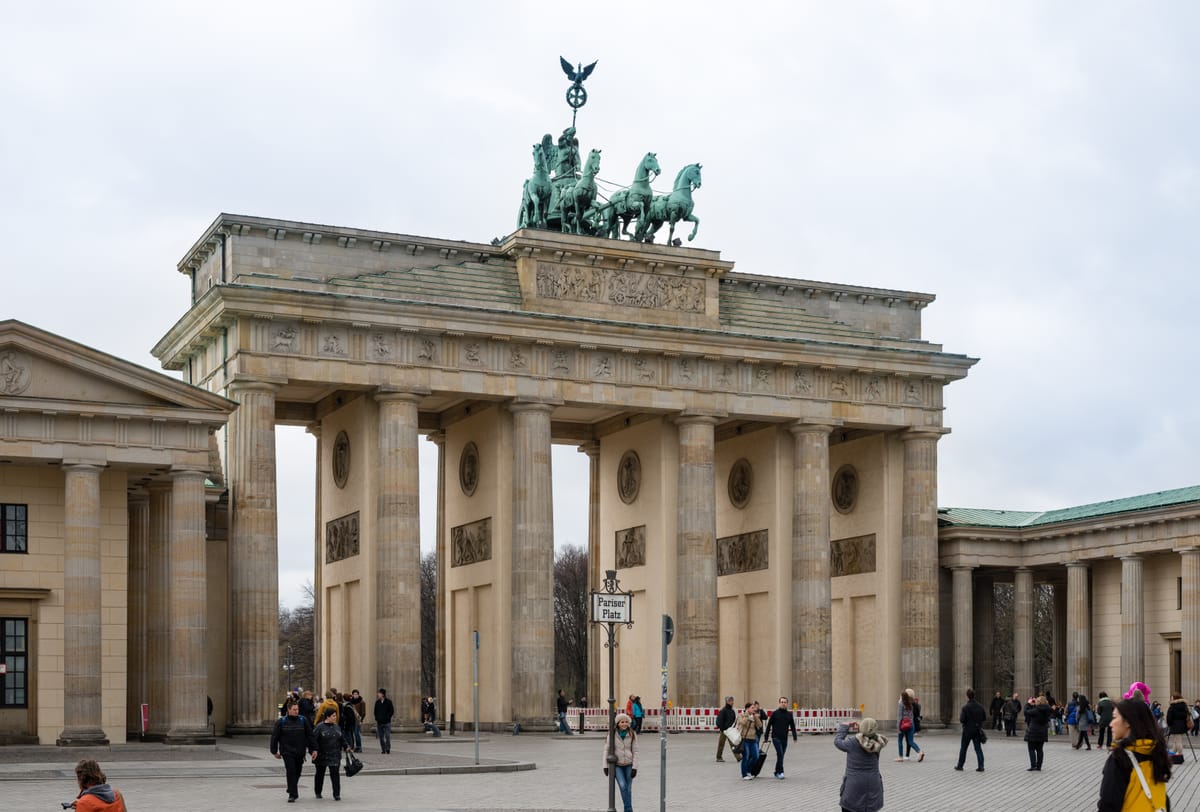
As told to Vashti by S.
On the morning of 15 May, I met on Zoom with a few other members of the Jewish Anti-Fascist Bund to organise a statement in opposition to the protest ban and in support of Palestine Speaks, explaining that the ban was absurd and has nothing to do with antisemitism. Four of us from that meeting then decided we would go to Hermannplatz, where Palestine Speaks had told people to gather. There was no intention of demonstrating: the organisers merely wanted to hold a space to commemorate the Nakba and mourn Shireen’s killing.
I rode my bike to the square a few minutes before we were supposed to meet in order to scout it out, and saw a massive police presence in all of the streets leading to the square: every street had multiple police cars and vans, with police dressed in helmets and body armour as well as the pistols and clubs that German police always carry. When I rode through the square, I saw one person wearing a Palestinian flag as a T-shirt; some people who looked as though they were looking around for others who had come for the vigil; and some plain-clothes policemen. There was certainly no demonstration.
After scouting it out, I rode back to meet up with the other three and walk into the square together. It’s always very busy because it’s a commercial centre, so it’s hard to tell who’s there for what; you see people looking around, or a group standing together, and you think, “OK, they might be activists.” We walked into the centre of the square and saw a few people we recognised – someone from Jewish Voice for a Just Peace and another Palestinian activist or two. So the four of us turned into maybe six or eight, all extremely nervous because there were police everywhere.
Elsewhere in the square, I saw someone wearing a keffiyeh yell something; the police immediately grabbed them and took them away. There were others wearing keffiyehs standing by themselves, clearly nervous. Someone in our group mumbled that the police were arresting others so maybe we should move. And then, within only a minute or two of walking around the square trying to figure out what to do, the police decided we were people of interest and surrounded us without saying anything. It was so quick.
Somehow they combined us with other small groups of people, so by this point there were maybe 30 of us kettled. The police then told us: “You’re being detained on suspicion of taking part in an illegal demonstration.” Nobody in this group had so much as said anything. No one was chanting. There were no signs, and no banners. There was one woman wearing a Palestinian flag as a top – that was apparently enough provocation.
We sat there for an hour and a half in the sun; it didn’t seem like they knew what they wanted to do with us. During that time, I saw a few other individuals outside of the kettle yell, “Free Palestine!” or wave a Palestinian flag, and then be grabbed by police and taken away. I know similar things happened on some of the side streets leading to the square too. Someone outside of the kettle actually tried to start a call-and-response chant with us – “Free, Free” – and none of us responded, because we knew that would be a kind of tacit acknowledgement that we were taking part in a demonstration. That person might have been a police plant, I don’t know.
Eventually, the police said: “If anyone wants to, they can come with us.” We were all tired of sitting there, so we went with them. They asked for our IDs and photographed us one by one, supposedly for verification purposes, and told us that our data would be deleted after a few days. Then we were given a verbal warning and released; they told me and a few of the other Bundists that we had to go straight home and stay there until midnight.
It wasn’t the worst policing experience I’ve had, but I’d never seen so many officers in that square. Their presence was suffocating. Someone would literally shout “Free Palestine!” and the police would grab them. The Berlin police often brutalise racialised minority protesters, but at least the protests are usually allowed to take place. I’d never seen something like this.
The narrative about antisemitism in Germany is that “We know what antisemitism is, we’ve gone through this shame and we’ve dealt with it.” It’s convenient that Germans see antisemitism in their society today as a problem imported by immigrants.
Last summer a march by neo-Nazis was allowed to take place in Weimar at the same time as a Yiddish culture festival. These are actual Nazis. But if someone says, “I would like to mourn a murdered journalist” – that’s antisemitism.
Germany's proud “war on antisemitism” equates Jews with Israel and holds them as eternal victims, a posture which is itself antisemitic by denying Jewish people full personhood. Despite claiming to take antisemitism seriously, Germany mostly ignores actual Nazis in the government or police or dismisses them as a “few bad apples,” while the state instead boasts of fighting antisemitism by brutalising racialised minorities that criticise Israel – or in this case, dare to hold a vigil.
S is a member of the Jewish Anti-Fascist Bund in Berlin.

